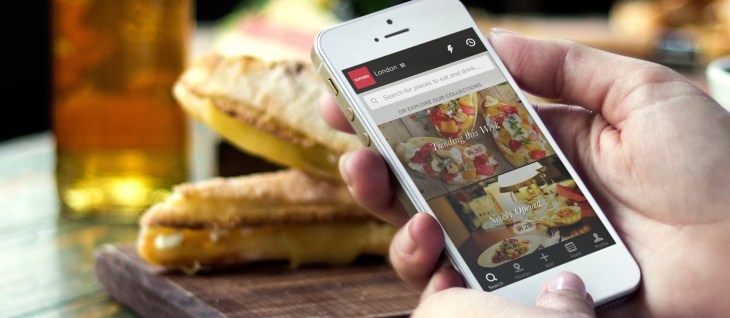Zomato, the restaurant search and discovery service that’s raised a whopping $55 million in VC, is making good on its promise to continue expanding to more countries beyond its origins in India. The 2008-founded company — which counts Yelp, IAC-owned Urbanspoon, Priceline-acquired OpenTable, and TripAdvisor as competitors — is adding a presence in Central and Eastern Europe by means of two local acquisitions.
It’s gobbled up the Czech Republic’s Lunchtime.cz and Slovakia’s Obedovat.sk — the leading restaurant guides in their respective countries, according to Zomato — for a combined $3.25 million. This follows the acquisition of New Zealand-based restaurant search service MenuMania in July and means the service is now available in various cities in 15 countries, with the startup targeting a further ten or so in the coming months.
Zomato co-founder Pankaj Chaddah tells me this will include, Poland, Ireland, Malaysia, Vietnam, Lebanon, Jordan, Kuwait and Canada — with the U.S. notably still missing in action.
“We are looking at the U.S. in the second half of 2015,” he says, adding that the company plans to raise another round of funding before that. In contrast to the U.S., Chaddah says Canada is underserved in the restaurant search space and offers a “huge opportunity for us. We will launch Zomato Toronto in the next 2 months.”
Spanning information on over 250,000 restaurants, Zomato’s restaurant search and discovery service attempts to differentiate itself from the likes of Yelp with a “feet on the street ” approach in the hope of giving its local eatery information an edge. The startup began as a menu card scanning service in India, sending people out to collect menus from restaurants and then scanning them using OCR.
Today it augments this data with various social features, including the ability to follow other users’ activity and write and read reviews, as well as letting you find a restaurant by dish and offering up other granular info like opening hours and services offered (take-away, dine-in, home delivery, etc.).
Interestingly, data is then re-checked in person by Zomato’s team every three months to ensure it stays relatively fresh, which is obviously more labour intensive and less scalable than a purely online data play. The company currently employs around 800 people, the majority of which work on content.
“Our core strength is fresh, exhaustive restaurant information, and we have a team in every market focusing on this core to make sure we are relevant and reliable for users,” explains Chaddah. “This includes re-visiting restaurants to ensure that our data is fresh and accurate. In that sense, it does pose a challenge while scaling, and finding the right people for the job isn’t easy – but we think that’s a good problem to have.”
Which, of course, brings into focus today’s two acquisitions (though the purchase of Obedovat.sk isn’t expected to close till the end of September). I asked Chaddah why the decision was made to buy rather than build something from scratch in the Czech Republic and Slovakia.
“It’s not really about build vs buy for us – it’s about hitting the ground running with the right team,” he says. “We have a labour-intensive model, and execution is very important for us. We enter markets as soon as we have a team that can make things happen quickly. In Portugal, we built from scratch, but we were fortunate to have acquired teams like we did in the Czech Republic and Slovakia. Acquiring market leaders with local insight and experience in countries we want to expand to is obviously a good choice.”
To that end, Chaddah says Zomato will be working with Lunchtime and Obedovat on building an integrated product over the coming months.
He also shared some updated metrics with TechCrunch: The service now has a monthly user base of 23 million across web and mobile, 50 per cent of which is from India. Meanwhile, mobile (web and native app) now accounts for 55 per cent of total traffic.
“We have two focus areas for the immediate future – expansion across multiple geographies, and building vertical depth within the restaurant space,” adds Chaddah. “In markets where we have strong merchant relationships, you can expect to see in-app payments, and realtime consumer-merchant interaction very soon.” This will be in addition to the native ads that currently monetise the service.
